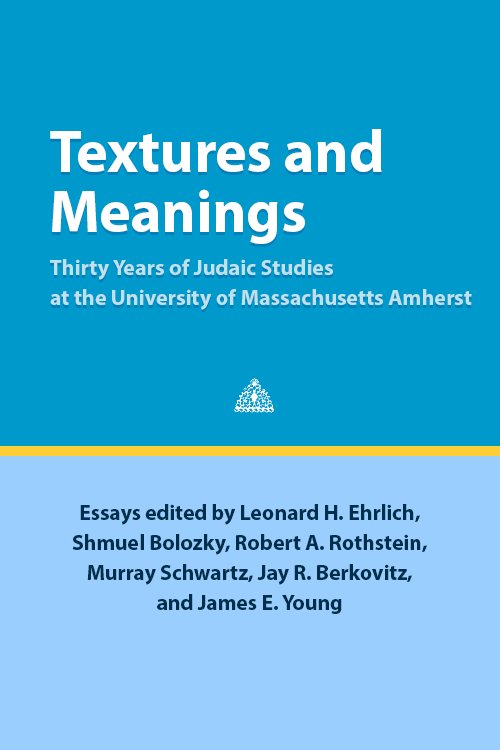Else Lasker-Schüler on the Lost Bridge Between Jews and Christians
Sigrid Bauschinger
This chapter is part of: Leonard H. Ehrlich et al. 2004. Textures and Meanings: Thirty Years of Judaic Studies at the University of Massachusetts Amherst
Download Chapter| Description |
|---|
| In this section’s final essay, Sigrid Bauschinger celebrates the poet Else Lasker-Schüler. She begins by reviewing the thought of Leo Baeck, a leading figure in Jewish liberalism much admired by Lasker-Schüler. For Baeck, the transmission of religious texts was a process of interweaving past and present, figuring the present associatively through the past and projecting the present into the past. Christian theology can be understood, then, as a transformation of the thinking of Jesus, an appropriation and distortion of Judaism. Like Baeck, Lasker-Schüler looks back to the original gospel as part of the history of Jewish belief. For Lasker-Schüler, the lost bridge between Christians and Jews is Jesus himself, who would have led Jew-Christians. Bauschinger ends her essay with the story of Else Lasker-Schüler’s narrative (in Germany, 1932) and play (in Zurich, 1933) of Arthur Aronymus, which combines elements of the poet’s family history and historical event in Westphalia in the nineteenth-century. In this work, Lasker-Schüler advocates the unity of Christians and Jews in a time of persecution of Jews by Christians, the same conviction that would lead her to ask Pope Pius XII to declare Jews innocent of blood libel in 1940. Bauschinger presents Else Lasker-Schüler as an exemplar of a unity and transcendence that was to be radically violated in the years ahead, but which she continued to personify to her last years in Jerusalem. |
-
Details
Published Published By Aug. 1, 2004 University of Massachusetts Amherst Libraries Citation Bauschinger S. 2004. Else Lasker-Schüler on the Lost Bridge Between Jews and Christians. In Leonard H. Ehrlich et al. 2004. Textures and Meanings: Thirty Years of Judaic Studies at the University of Massachusetts Amherst
